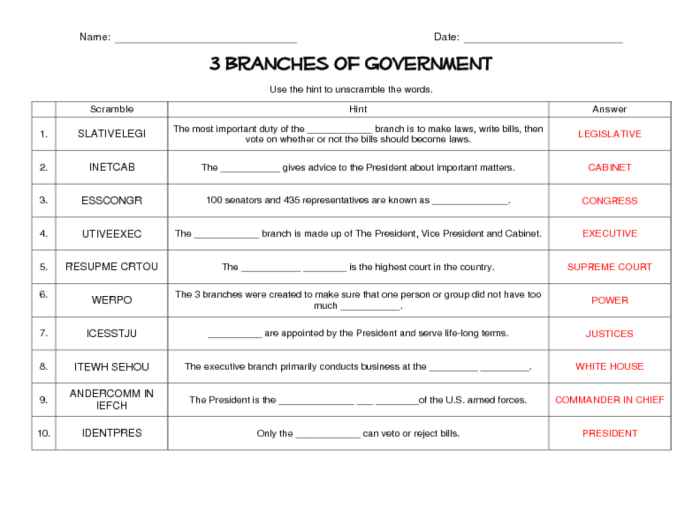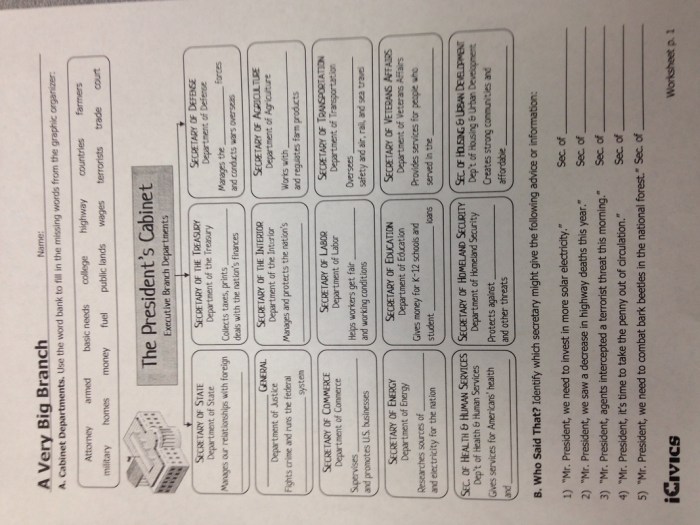Welcome to the authoritative exploration of popular v. president answer key pdf, where we embark on a journey to unravel the captivating world of vice presidents. This meticulously crafted guide unveils the secrets behind their popularity, historical significance, and multifaceted roles.
Throughout history, vice presidents have played pivotal roles, leaving lasting impressions on the political landscape. From their constitutional duties to their informal responsibilities, this guide provides an in-depth examination of their impact on the nation.
Popularity of Vice Presidents

Vice presidents can achieve popularity for various reasons, including their charisma, political skills, and alignment with public sentiment. For instance, Al Gore’s environmental advocacy and Joe Biden’s empathy and relatability have contributed to their popularity.
Factors Contributing to Popularity, Popular v. president answer key pdf
- Charisma and interpersonal skills
- Strong political acumen and leadership qualities
- Ability to connect with the public and articulate their concerns
- Alignment with popular political views and social causes
- Effective use of media and social platforms to engage with the public
Impact on Political Career
A vice president’s popularity can significantly impact their political career. It can enhance their visibility, credibility, and electability. Popular vice presidents are often seen as potential presidential candidates and may have an advantage in securing future political positions.
The Role of the Vice President

The vice president of the United States is the second-highest official in the executive branch of the federal government. The vice president is elected alongside the president for a four-year term. The vice president’s primary constitutional duty is to preside over the Senate, but the vice president also has a number of other important roles and responsibilities.
Constitutional Duties and Responsibilities
The vice president’s constitutional duties and responsibilities are Artikeld in Article I, Section 3, Clause 4 of the United States Constitution. These duties include:
- Presiding over the Senate
- Voting in the Senate in the event of a tie
- Succeeding to the presidency in the event of the president’s death, resignation, or removal from office
Informal Roles and Expectations
In addition to their constitutional duties, vice presidents often fulfill a number of informal roles and expectations. These roles and expectations can vary depending on the president and the vice president’s relationship with the president. Some common informal roles and expectations of vice presidents include:
- Advising the president on policy matters
- Representing the president at events and ceremonies
- Leading special projects or initiatives
- Acting as a liaison between the president and other branches of government or foreign leaders
Presidential Succession
In the event of the president’s death, resignation, or removal from office, the vice president becomes president. The process of presidential succession is Artikeld in the Presidential Succession Act of 1947. The act establishes a line of succession that includes the vice president, the speaker of the House of Representatives, the president pro tempore of the Senate, and the members of the Cabinet in order of seniority.
Vice Presidents in the Media

Vice presidents have often been portrayed in popular culture as either ambitious schemers or loyal sidekicks. This portrayal has been shaped by a variety of factors, including the media’s focus on conflict and drama, as well as the public’s limited understanding of the vice president’s role.
One of the most common stereotypes of vice presidents is that they are ambitious and power-hungry. This stereotype is often reinforced by movies and TV shows that depict vice presidents as plotting to overthrow the president or seize power for themselves.
In reality, most vice presidents are loyal and supportive of the president, and they do not have the authority to unilaterally make decisions or take actions.
Another common misconception about vice presidents is that they are not very important. This misconception is often based on the fact that the vice president has no formal powers or duties beyond those that are assigned by the president. However, the vice president can play a significant role in the administration, and they can be a valuable asset to the president.
The media’s coverage of vice presidents can have a significant impact on the public’s perception of them. Negative media coverage can damage a vice president’s reputation and make it difficult for them to be effective in their role. Positive media coverage, on the other hand, can help to build public support for the vice president and make it easier for them to work with the president and other members of the administration.
Impact of Media Coverage
- Negative media coverage can damage a vice president’s reputation and make it difficult for them to be effective in their role.
- Positive media coverage can help to build public support for the vice president and make it easier for them to work with the president and other members of the administration.
- The media’s focus on conflict and drama can lead to inaccurate and misleading portrayals of vice presidents.
- The public’s limited understanding of the vice president’s role can contribute to misconceptions about their importance and power.
Top FAQs: Popular V. President Answer Key Pdf
What factors contribute to the popularity of vice presidents?
Charisma, political skills, public service record, and alignment with popular sentiment.
Name some examples of vice presidents who have achieved high levels of popularity.
Theodore Roosevelt, Al Gore, Joe Biden
How does a vice president’s popularity impact their political career?
It can enhance their chances of winning future elections, including the presidency.